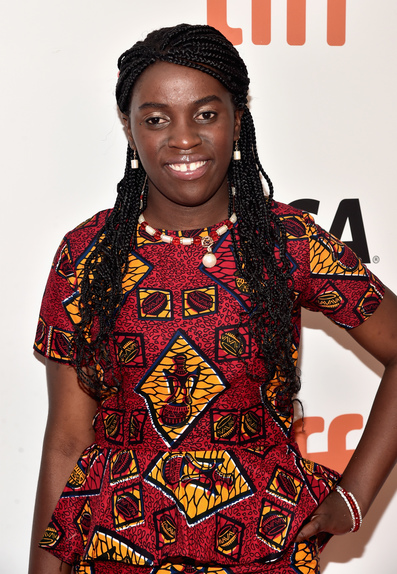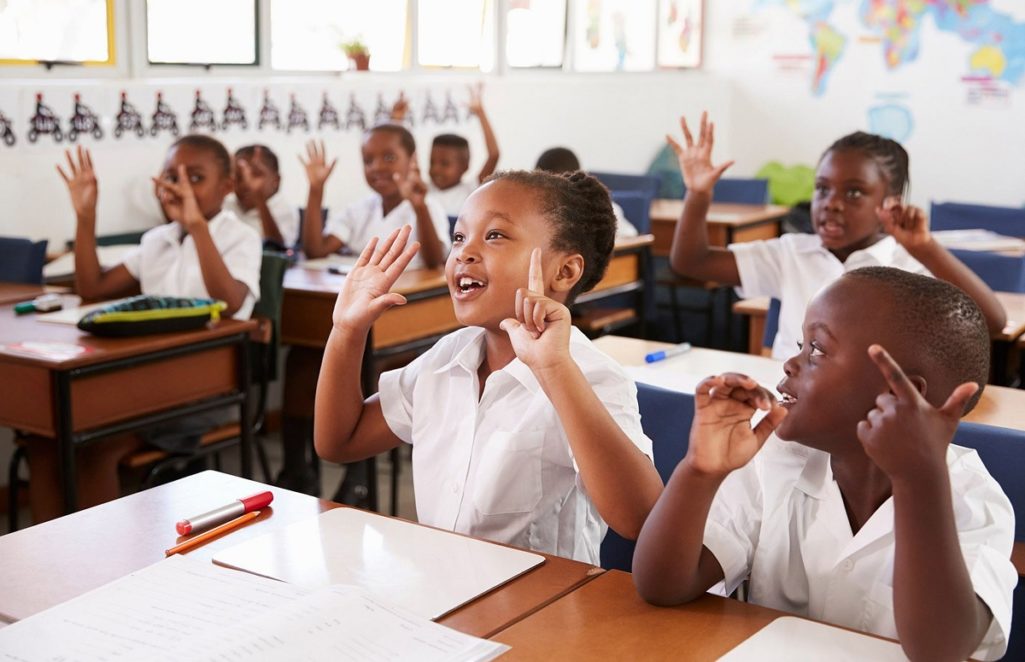Why Kim and Priscilla Addison Left For Ghana To Do Business

Priscilla and Kimberly (Kim) Addison did not grow up in Ghana nor did they set out to be chocolatiers. Although of Ghanaian heritage, both girls grew up in Senegal and had their higher education in the United States.
Priscilla is a graduate of New York University’s Robert F. Wagner School of Public Service, where she obtained a Master’s in Public Administration (MPA) with a specialization in International Development.
Kim holds a Bachelor of Arts in French and International Studies with a concentration in Social Justice from Boston College. So, what prompted them to move to Ghana to start a business in an industry where they had no experience?
ALSO READ: Interview With Tim Crothers, Author of ‘Queen of Katwe’

Their inspiration
Kim/Priscilla: “Two years ago, we thought it was strange that Switzerland is known for its chocolate but yet, does not have a single cocoa tree. Meanwhile, Ghana, being the second largest producer of cocoa grows the main ingredient in chocolate (cocoa) but produced very little chocolate itself.
We saw a vast need for manufacturing in Ghana and across the continent of Africa.” The girls said in an interview with African Vibes.
These sisters were awarded the 2016 Tony Elumelu Entrepreneurship program for manufacturing. This was in recognition of their game-changing entrepreneurial efforts as chocolatiers.
I caught up with the girls to learn about their business and experience as Returnees. Here is what they had to say.
Their business idea

Kim/Priscilla: “Generally, there is untapped potential in the manufacturing of chocolate across the continent. In Ghana, the candy shelves of supermarkets and malls are overflowing with foreign chocolate bars, some undoubtedly made with Ghana’s very own cocoa.
On the other hand, Ghana is known for its cocoa, but not for its chocolate products. Having recognized all this, we were determined to create a Ghanaian brand that is reputable locally and internationally.
‘57 Chocolate was conceived in an attempt to inspire the youth to use their minds and creative geniuses to transform Ghana’s resources by making and creating local products of premium value.
At ’57 Chocolate we take dried cocoa beans and process them into luxurious chocolate and confections. What’s most unique about our business is that we produce chocolate that is a reflection of Ghanaian art and culture, right from our packaging to our chocolate products.”
ALSO READ: How To Get Reliable Internet In Any African Country
Addison sisters embed cultural elements in their chocolate bars

Kim/Priscilla: “We look to Ghanaian art and culture for our inspiration. Our 10-gram Adinkra bars are particularly a reflection of motivation. These bite-sized bars are beautifully engraved with visual symbols created by the Ashanti of Ghana.
We have a collection of 12 different Adinkra symbols, each representing a concept or a particular meaning. We will be adding more concepts to our collection in the coming year.
We are also working on some exciting flavors which will incorporate more local ingredients, we hope to debut within the coming year!”
The origin of Addison brand’s name

Kim/Priscilla: “The name ’57 is short for 1957—the year of Ghana’s independence. 1957 was a revolutionary year for the country, not only because it was freed from colonial rule, but it is the year that gave birth to the nation’s “can-do spirit.”
Before 1957, industrialization in Ghana was non-existent, most goods were imported and not produced in the country. It is a call and reminder that sometimes in order to go forward, we need to look back at our foundation—our roots.
‘57 Chocolate aims to inspire the people of Ghana, especially the youth to create and develop made in Ghana products of premium value.”
Their goal

Kim/Priscilla: “Over the long-term, we aim to create a Ghanaian chocolate brand that is known worldwide, but most importantly one that surpasses our lifetime. We hope to have our chocolate sold across the continent of Africa and around the globe.”
ALSO READ: African Vibes Magazine’s 2018 African Billionaires List
The naysayers
Kim/Priscilla: “The biggest setback was meeting people along the way who kept telling us the idea of making chocolate from bean to bar in Ghana was impossible.
Despite the discouraging comments, we persevered. What may be impossible to one person is possible to 100+ others. We decided to show people that it can be done. Of course, we made plenty of mistakes along the way, but this is always part of the journey and the climb to success.”
Overcoming negativity
Kimberly: “It’s my faith in Jesus Christ. In challenging times, I am able to press on because I know God is bigger than any challenge I can ever face. He is my source of strength.”
Priscilla: “For me, it’s the endless possibilities Ghana has to offer. We are eager to keep using our creativity to address some of Ghana’s problems. Our intention is not only to stick to cocoa but venture into other sectors and create something in addition to ’57 Chocolate that will outlive our lifetime.”
Accomplishments

Kim/Priscilla: “Winning the Tony Elemelu Entrepreneurship Program for manufacturing is one of our biggest successes. Our experience with the program has been a great opportunity!
It has provided us with an incredible amount of insight into business and has linked us to a multitude of entrepreneurs across the African continent. We are honored to have been selected to represent Ghana in the field of manufacturing.
The second accomplishment is having actual products we can sell on the market locally that our customers patronize.
Currently, we have 6 signature flavors: dark (2 kinds including 88 percent baobab and 73 percent dark chocolate), milk, white and mocha latte (coffee flavor), and bissap (or hibiscus flavor) chocolate products.
We pair our chocolates with various ingredients like coconut, almond, and sea salt. For a complete list of our products, please visit our website. Our bestsellers are the 73 percent dark chocolate and mocha latte flavors.
Our clients buy our chocolate directly from us since all chocolates are handmade and made to order. They contact us via Instagram, Facebook, and Twitter or via email at hello@57chocolategh.com. At the moment we do not retail our products, but we hope to do this in targeted boutiques once the time is right.
Why it’s worth it
Kim/Priscilla: “First and foremost, we love seeing the joy our chocolate brings to our clients, knowing that we are adding value to a resource right at home. Many people thought this would be impossible to achieve.
Additionally, it’s the support and encouragement that we’ve received from near and far. We have received several inquiries about investments and whether we ship our chocolate abroad.”
Memories along the way

Kim/Priscilla: “One special memory we have is making our first batch of chocolate. It was absolutely spectacular to feel, taste, and see an actual product we created.
After experimenting with a few recipes, we finally settled on one we both enjoyed and wanted to share with the world. This was really a proud moment for us. An equally special moment was our first bulk sale of our Adinkra chocolates for a Ghanaian wedding!”
Lessons Learned by Addison Sisters in Business

Kim/Priscilla: “We have learned many lessons. Here are just a few. In our experience as emergent entrepreneurs, we have learned to always have several contingency providers in case your primary contact is unable to deliver in a timely manner.
We have also learned that there is really never a right time to start. Now is always the right time. Start making and creating your product, put it out there. Based on feedback from your market, you can always improve or tweak it along the way.
We have learned that mistakes are important. As much as you don’t want to make mistakes they are inevitable. It’s part of the journey to becoming great.”
True Grit -Addison Sisters

The challenges of doing business in Ghana
Kim/Priscilla: “It’s definitely not been easy. Although we are Ghanaian by heritage, we had never lived in Ghana up until this point. It is important to know and understand the factors that can either benefit or hurt the operations of your business.
A major challenge for us with starting the business was dumsor– a popular Ghanaian word used to describe unpredictable power outages.
Ghana has been undergoing a power crisis and our business requires a study supply of electricity in order to produce and store our chocolate, since it is made from a bean to a chocolate bar. We have a generator in case we are in need of electricity.”
Take the leap of faith—Addison Sisters
Kim/Priscilla: “We were living in Switzerland, before moving to Ghana. We both knew we wanted to move back to Ghana, get to know our culture better, be closer to family (our parents) and build something with our creative minds.
We didn’t have many fears, we were always hopeful and positive. We believe if you speak and believe in positivity it will manifest itself this way. What was incredibly challenging was understanding Ghana’s business environment, as this is not so evident.”
Ghana culture shock?
Kim/Priscilla: “Not at all. We grew up in Dakar, Senegal. No matter where you live there will be similarities and differences. We learn to understand and sometimes appreciate the differences.”
Ghana — The Good
Kim: “I like the sunshine, heat, and the avid entrepreneurship movement in Ghana.”
Priscilla: “Tropical fruit (pineapples, mangoes, and coconuts). I also like that there is so much opportunity to innovate, create and solve some of the country’s challenges.”
Ghana – The Bad
Kim: “I dislike that we import so much and place very little value on goods made in Ghana.
Priscilla: “The plastic waste! It’s everywhere, on the streets and along the beach side. It’s a huge problem! We all need to make an effort to keep Ghana clean”
Word of wisdom to entrepreneur returnees Addison Sisters

Kim/Priscilla: “Do a lot of research and reading as well as talk to people in your field of interest. Anticipate your challenges but be open to making mistakes. That’s the only way you are going to learn.”
Editor’s Note
Priscilla and Kimberly Addison are a reminder that for Africa to live its potential, we all have a role to play. It is not enough for Africans in the diaspora to elevate themselves and their immediate families with some level of intellectual and financial success. The success of an African diasporan should have an additional measure, and that should be the knowledge and resource contribution given back to the continent to improve the situation of those who may not be direct beneficiaries of the same opportunities we were each given. Whether it is job creation, training people in an industry to do things better, building infrastructure, or contributing ideas or resources … we each have an obligation to do something. If Africa thrives, the world thrives along with it.
– Belle Niba







Responses